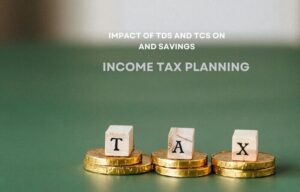How a CPA Income Verification Letter Can Help Self-Employed Individuals Qualify for Credit

Securing credit as a self-employed individual can feel like an uphill battle. Unlike traditional employees who can easily provide pay stubs and W-2s, self-employed professionals often struggle to present consistent proof of income. Lenders want reassurance that borrowers can repay their debts, and fluctuating earnings can make approval difficult. This is where a CPA income verification letter holds immense value. It serves as an official document that verifies income stability, giving lenders confidence in an applicant’s financial standing. Here’s how it can significantly improve the chances of qualifying for loans, credit cards, or mortgages.
Why Lenders Require Proof of Income
Lenders assess risk before approving any credit application. They want assurance that borrowers have a reliable income stream to meet repayment obligations. For salaried employees, verifying income is straightforward through pay stubs and tax documents. However, self-employed individuals often experience variable income, making traditional verification methods less effective. Lenders need alternative ways to confirm financial stability before extending credit.
A well-documented income history reassures lenders that an applicant has the means to repay a loan. Without proper verification, self-employed individuals may face higher interest rates, lower credit limits, or outright rejection. Demonstrating consistent earnings through reliable documentation can make the application process smoother and more successful.
The Challenges Self-Employed Individuals Face When Applying for Credit
Self-employed individuals frequently encounter hurdles when applying for loans, mortgages, or credit cards. One major challenge is the lack of traditional pay documentation. Many lenders hesitate to approve applicants without clear proof of steady income. Since self-employed earnings fluctuate, financial institutions may perceive them as high-risk borrowers.
Additionally, tax deductions, while beneficial for reducing taxable income, can make an applicant’s earnings appear lower than they are. This can negatively impact loan approvals or credit limits. Fortunately, alternative forms of documentation, like a CPA verification letter, can bridge this gap. By providing a verified record of income, self-employed individuals can strengthen their case and increase their chances of securing credit.
What a CPA Income Verification Letter Includes
A CPA income verification letter outlines essential financial details to assure lenders of an applicant’s ability to repay borrowed funds. It typically includes the self-employed individual’s name, business details, and length of time in operation. The letter also states the individual’s annual or monthly income, which the CPA has reviewed based on tax returns, financial statements, and bank records.
In addition, the letter may highlight income consistency and stability, providing lenders with valuable insight into the borrower’s financial health. Some lenders may also request specific information, such as tax filing status or anticipated future earnings. A well-prepared CPA letter adds credibility to a self-employed person’s credit application.
How a CPA Income Verification Letter Helps Build Credibility
A self-employed applicant often faces skepticism from lenders, but a CPA income verification letter adds a layer of trustworthiness to the application. Since the document is handled by a certified public accountant, it carries more weight than self-reported income statements. Lenders recognize CPAs as reliable financial professionals, and their verification provides a level of assurance that tax returns alone may not offer.
By having an independent professional validate income details, self-employed individuals can overcome doubts about the reliability of their earnings. This credibility can mean the difference between approval and rejection. With proper documentation, lenders are more likely to extend credit at favorable terms, helping applicants access the financial resources they need.
How Lenders View a CPA Income Verification Letter
Lenders rely on documentation to assess an applicant’s ability to repay debt, and a CPA income verification letter adds credibility to a self-employed individual’s financial profile. Since self-employment income is not as predictable as a salary, financial institutions often take extra precautions before approving credit.
When a CPA verifies income, it reassures lenders that the applicant has a stable financial foundation. The letter is a professional assessment based on financial records, tax returns, and other relevant data. Because CPAs adhere to strict accounting principles, lenders consider their verification trustworthy. This can lead to a smoother approval process, potentially securing better loan terms and lower interest rates.
When and How to Request a CPA Income Verification Letter
Timing is crucial when requesting a CPA income verification letter. Self-employed individuals should obtain this document before applying for credit, as it allows them to present a complete application without delays. Some lenders might request additional financial documents, so having the letter ready can streamline the process.
To request a verification letter, an individual should contact their CPA and provide necessary financial records, including tax returns, profit and loss statements, and bank statements. The CPA will review these documents and draft a letter that accurately reflects the applicant’s financial standing. It is essential to ensure the letter includes all relevant details, as an incomplete or vague statement may not satisfy lender requirements.
Types of Credit That May Require a CPA Income Verification Letter
Different types of credit applications may require a CPA income verification letter, particularly when standard proof of income is unavailable or insufficient. Mortgage lenders, for example, often request income verification for self-employed borrowers since they lack W-2s. A CPA letter can serve as a strong supplement to tax returns and financial statements.
Business loans may also require proof of consistent income, especially when a self-employed individual seeks funding for expansion or operational expenses. Additionally, personal loans and credit cards with high limits may necessitate extra verification to prove financial stability. By presenting a CPA-verified income letter, applicants can increase their chances of approval across various credit types.
Read More: 5 Tax Audit Triggers You Should Avoid When Self-Employed
Common Mistakes to Avoid When Using a CPA Income Verification Letter
While a CPA income verification letter can be a powerful tool, certain mistakes can reduce its effectiveness. One common error is submitting a letter with outdated financial information. Lenders require recent data, so an applicant should ensure their CPA uses the most current financial records.
Another mistake is failing to include necessary details, such as the length of time in business or a clear income summary. Vague letters may lead to additional requests from lenders, delaying the approval process. Lastly, some applicants attempt to exaggerate income in their verification letters. Any discrepancies between the letter and tax documents can raise red flags, leading to application denials. Honesty and accuracy are crucial when using a CPA verification letter.
For self-employed individuals, obtaining credit can be challenging due to fluctuating income and the lack of traditional pay documentation. However, a CPA income verification letter can bridge this gap by offering lenders a verified record of financial stability. By ensuring accuracy and requesting the letter in advance, applicants can strengthen their credit applications and improve their chances of approval. With proper documentation and a strategic approach, self-employed professionals can access the financial opportunities they need to grow their businesses and secure their financial future.

Pranab Bhandari is an Editor of the Financial Blog “Financebuzz”. Apart from writing informative financial articles for his blog, he is a regular contributor to many national and international publications namely Tweak Your Biz, Growth Rocks ETC.







